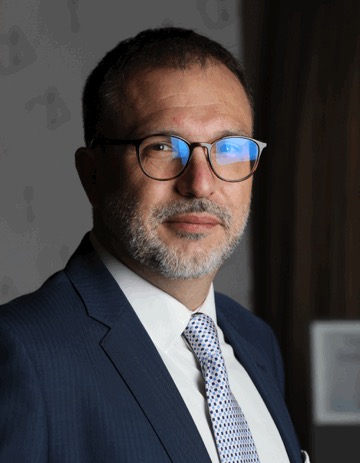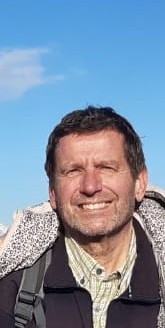Studying at the University of Verona
Here you can find information on the organisational aspects of the Programme, lecture timetables, learning activities and useful contact details for your time at the University, from enrolment to graduation.
Academic calendar
The academic calendar shows the deadlines and scheduled events that are relevant to students, teaching and technical-administrative staff of the University. Public holidays and University closures are also indicated. The academic year normally begins on 1 October each year and ends on 30 September of the following year.
Course calendar
The Academic Calendar sets out the degree programme lecture and exam timetables, as well as the relevant university closure dates..
| Period | From | To |
|---|---|---|
| 1° periodo lezioni - GEM | Oct 3, 2022 | Dec 23, 2022 |
| 2° periodo lezioni - GEM (febbraio/aprile) | Feb 13, 2023 | Apr 4, 2023 |
| 2° periodo lezioni - GEM (aprile/maggio) | Apr 12, 2023 | May 13, 2023 |
| Session | From | To |
|---|---|---|
| Sessione invernale - GEM - 2 appelli | Jan 9, 2023 | Feb 11, 2023 |
| Sessione estiva - GEM - 2 appelli | May 15, 2023 | Jul 22, 2023 |
| Sessione autunnale - GEM - 2 appelli | Aug 28, 2023 | Sep 30, 2023 |
| Session | From | To |
|---|---|---|
| Sessione autunnale - GEM - novembre 2022 | Nov 2, 2022 | Nov 2, 2022 |
| Sessione invernale - GEM - aprile 2023 | Apr 5, 2023 | Apr 5, 2023 |
| Sessione estiva - GEM - giugno 2023 | Jun 30, 2023 | Jun 30, 2023 |
| Period | From | To |
|---|---|---|
| Tutti i Santi | Nov 1, 2022 | Nov 1, 2022 |
| Festa dell’Immacolata | Dec 8, 2022 | Dec 8, 2022 |
| Vacanze natalizie | Dec 23, 2022 | Jan 8, 2023 |
| Vacanze di Pasqua | Apr 7, 2023 | Apr 10, 2023 |
| Festa della Liberazione | Apr 25, 2023 | Apr 25, 2023 |
| Festa del lavoro | May 1, 2023 | May 1, 2023 |
| Festività Santo Patrono | May 21, 2023 | May 21, 2023 |
| Festa della Repubblica | Jun 2, 2023 | Jun 2, 2023 |
Exam calendar
Exam dates and rounds are managed by the relevant Law Teaching and Student Services Unit.
To view all the exam sessions available, please use the Exam dashboard on ESSE3.
If you forgot your login details or have problems logging in, please contact the relevant IT HelpDesk, or check the login details recovery web page.
Should you have any doubts or questions, please check the Enrollment FAQs
Academic staff
 eleonora.branca@univr.it
eleonora.branca@univr.it
 roberto.flor@univr.it
roberto.flor@univr.it
 gianluigi.lucietto@univr.it
gianluigi.lucietto@univr.it
 enrico.mariani@univr.it
enrico.mariani@univr.it
 stefania.pontrandolfo@univr.it
stefania.pontrandolfo@univr.it
Study Plan
The Study Plan includes all modules, teaching and learning activities that each student will need to undertake during their time at the University.
Please select your Study Plan based on your enrollment year.
1° Year
| Modules | Credits | TAF | SSD |
|---|
2° Year activated in the A.Y. 2023/2024
| Modules | Credits | TAF | SSD |
|---|
| Modules | Credits | TAF | SSD |
|---|
| Modules | Credits | TAF | SSD |
|---|
| Modules | Credits | TAF | SSD |
|---|
Legend | Type of training activity (TTA)
TAF (Type of Educational Activity) All courses and activities are classified into different types of educational activities, indicated by a letter.
Risk, crisis, conflict: political analysis of emergencies (2022/2023)
Teaching code
4S003645
Teacher
Coordinator
Credits
6
Language
Italian
Scientific Disciplinary Sector (SSD)
SPS/01 - POLITICAL PHILOSOPHY
Period
1° periodo lezioni - GEM dal Oct 3, 2022 al Dec 23, 2022.
Learning objectives
The course aims at introducing and discussing some of the major issues concerning political philosophy, especially those related to the contemporary global challenges that interest this field of research. What are the main political challenges of our present? What are the conceptual tools at our disposal to understand and possibly solve new and unprecedented emergency crises, conflicts, global risks? The course will tackle these themes by using both philosophical texts and literary, cinematic tools in order to broaden the political and cultural comprehension of phenomena. At the end of this course students will have acquired the following skills: - Knowledge of the major concepts of modern and contemporary political theory - Ability to apply such concepts to the understanding of contemporary emergency phenomena of political nature (conflicts, wars, migrations, humanitarian crises, terrorist attacks). - Ability to elaborate complex analyses of emergency situations, able to include and relate to eachother theoretical, historico-political, and contingent aspects of emergency, in order to favour peaceful solutions of conflicts). - Ability to critically analyse media, governmental, and public representations o emergency phenomena. - Ability to project, implement and disseminate communicative products (cultural, humanitarian, civic) informed by respect for human dignity and cultural diversity.
Prerequisites and basic notions
General notions on modern philosophy, the history of political thought, modern and contemporary history.
Program
THE ART OF WAR IN THE CONTEMPORARY WORLD
The course aims to retrace the ways in which modern warfare was conceived in the West, through the analysis of some important political thinkers (Machiavelli, Hobbes, Kant, von Clausewitz, Schmitt ). Subsequently we will analyze the transformations, in contemporary times, of the concepts of war and enemy. According to Rupert Smith, division commander in the first Gulf War, commander of the UN forces in Bosnia and deputy supreme commander of NATO, there is no longer the war of armies facing each other in the open field, but in the global scenario of widespread and persistent conflicts we find ourselves in the face of low intensity wars, mostly fought 'between the people' whose battlefield are the streets, houses, squares and especially civilian victims. The Russian invasion of Ukraine, however, further complicates the picture of contemporary warfare, not only for the massive deployment of ground troops, in what is a real invasion, but also for the 'hybrid' strategies with which war itself was prepared and legitimized. What practices, what conceptual models and what experiences do contemporary transformations of the political use of force bring into play? The course will try to analyze and understand these aspects, providing a theoretical-practical framework of the contemporary transformations of war also through the analysis of specific case studies discussed in class.
Bibliography
Didactic methods
Lessons based on the interpretation and deepening of the texts in the program, on the class discussion of concepts and phenomena related to the exam program, on the analysis of specific 'case studies' with the help of audiovisual material. The teaching method is essentially based on the active participation of the students, constantly tickled by questions to undertake the discussion in class - with the teacher and with each other. Furthermore, students are invited to make oral presentations in front of the class on topics of the course or related to them.
Learning assessment procedures
The exam discussion will begin with a presentation by the student of a case study (concept, event, fact, phenomenon, etc.) freely chosen and prepared based on the texts in the program. Afterwards, the teacher can request an in-depth study on that case, concept, fact, or on other topics addressed in the course and contained in the texts. For attending students: the preparation of the presentation for the oral exam may also be inspired by the discussions that emerged in class, and possibly by additional materials distributed in class.
For non-attending students: The exam program is the same, including additional texts that will be delivered in class and then made available on the moodle platform. The examination procedure will be entirely based on the texts in the program, but it can in any case start from the presentation of a case study (see above).
Evaluation criteria
The oral exam will verify that the student has read the entire bibliography in the program and knows how to return it to the teacher with language properties, argumentative ability, individual elaboration. The student will also be assessed on the ability to master the topics and to know how to apply them to concrete contexts, offering reasoned readings of the phenomena analyzed in class and in individual study.
Criteria for the composition of the final grade
Participation in class discussions and oral presentation of in-depth analyzes prepared in groups or individually will contribute 30% of the final grade. The remaining 70% will derive from the assessment of analytical, argumentative and communication skills, as well as from the originality demonstrated in the oral exam. For non-attending students, the final grade will depend entirely on the assessment of analytical, argumentative and communicative skills, as well as on the originality demonstrated in the oral exam.
Exam language
italiano
Type D and Type F activities
Le attività che consentono l’acquisizione dei crediti riservati alle attività formative a libera scelta dello studente (TAF D) sono le seguenti:
• Un insegnamento attivato nei Corsi di studi afferenti al Dipartimento di Scienze Giuridiche;
• Un laboratorio didattico attivato nei Corsi di studi afferenti al Dipartimento di Scienze Giuridiche;
• Un insegnamento previsto dall’Offerta Formativa di Ateneo, non impartito nell’ambito dei corsi di studi afferenti al Dipartimento di Scienze Giuridiche: il riconoscimento dei crediti acquisiti sarà subordinato alla preventiva presentazione di coerenti programmi formativi valutati e approvati dal Collegio didattico.
• Attività formative organizzate dai singoli docenti del Collegio didattico o del Dipartimento di Scienze Giuridiche: previa approvazione del Collegio;
• Attività formative che implicano la partecipazione a convegni o seminari organizzati sotto il “logo” del Dipartimento di Scienze Giuridiche o dell’Ateneo: devono essere preventivamente approvate dal Collegio didattico indicando un docente di riferimento del Collegio didattico ovvero del Dipartimento di Scienze Giuridiche.
• Attività formative che implicano la partecipazione a convegni o seminari organizzati prive del “logo” del Dipartimento di Scienze Giuridiche o dell’Ateneo: devono essere approvate dal Collegio didattico indicando un docente di riferimento del Collegio didattico ovvero del Dipartimento di Scienze Giuridiche.
Le attività che consentono l’acquisizione dei crediti riservati alle ulteriori attività formative (TAF F) sono le seguenti:
• Ulteriori competenze linguistiche (6 cfu)
• Stage o Project Work (6 cfu)
Al link Compilazione del piano didattico - Giurisprudenza le informazioni e la modulistica per l'inserimento di attività non selezionabili in autonomia dallo studente in sede di compilazione del piano degli studi.
| years | Modules | TAF | Teacher |
|---|---|---|---|
| 1° 2° | Conflict. Recognize, prevent, manage | D |
Annalisa Ciampi
(Coordinator)
|
| 1° 2° | Landscape and law in the Veneto region. A course of lectures | D |
Matteo Nicolini
(Coordinator)
|
| years | Modules | TAF | Teacher |
|---|---|---|---|
| 1° 2° | An introduction to Project Management | D |
Matteo Nicolini
(Coordinator)
|
| 1° 2° | Infrastrutture, logistica e industria: strategie ed azioni nella nuova globalizzazione | D |
Matteo Nicolini
(Coordinator)
|
| 1° 2° | Civil protections: the role of local councils | D |
Matteo Nicolini
(Coordinator)
|
| years | Modules | TAF | Teacher |
|---|---|---|---|
| 1° 2° | Conflict. Recognize, prevent, manage | D |
Annalisa Ciampi
(Coordinator)
|
| years | Modules | TAF | Teacher |
|---|---|---|---|
| 1° 2° | An introduction to Emergency Management | D |
Matteo Nicolini
(Coordinator)
|
| 1° 2° | Third Sector seminary | D |
Alessandra Cordiano
(Coordinator)
|
| 1° 2° | Omega. Horizons, models and parenting | D |
Alessandra Cordiano
(Coordinator)
|
| 1° 2° | Project work - Gestione delle emergenze in Italia | F |
Matteo Nicolini
(Coordinator)
|
| years | Modules | TAF | Teacher |
|---|---|---|---|
| 1° 2° | An introduction to Emergency Management | D |
Matteo Nicolini
(Coordinator)
|
| 1° 2° | Third Sector seminary | D |
Alessandra Cordiano
(Coordinator)
|
| 1° 2° | Omega. Horizons, models and parenting | D |
Alessandra Cordiano
(Coordinator)
|
| 1° 2° | Project work - Gestione delle emergenze in Italia | F |
Matteo Nicolini
(Coordinator)
|
| 1° 2° | Workshop on Emergencies: Cases and Policies | D | Not yet assigned |
Career prospects
Module/Programme news
News for students
There you will find information, resources and services useful during your time at the University (Student’s exam record, your study plan on ESSE3, Distance Learning courses, university email account, office forms, administrative procedures, etc.). You can log into MyUnivr with your GIA login details: only in this way will you be able to receive notification of all the notices from your teachers and your secretariat via email and soon also via the Univr app.
Student mentoring
Internships
Internships are aimed at enabling students to gain direct knowledge of the world of work and to acquire specific professional skills.
Internships are carried out under the responsibility of an individual lecturer, and can be carried out in professional firms, public administration bodies and companies recognised by the University of Verona.
Any CFU credits gained by doing internships will be recognised and recorded by the University in accordance with the relevant University regulations in force (Regolamento d’Ateneo per il riconoscimento dei crediti maturati negli stage universitari).
For further information on internships, please go to: https://www.univr.it/it/i-nostri-servizi/stage-e-tirocini.
Language skills
Graduation
List of theses and work experience proposals
| theses proposals | Research area |
|---|---|
| Analisi e riorganizzazione delle strutture comunitarie | Various topics |
| La social network analysis applicata allo studio dei contesti colpiti da eventi catastrofici | Various topics |
| L'intervento sociale in situazioni d'emergenza | Various topics |
| Politiche d'intervento in condizioni d'emergenza | Various topics |
| Terzo settore e gestione delle situazioni d'emergenza | Various topics |


 045 8028548
045 8028548

















